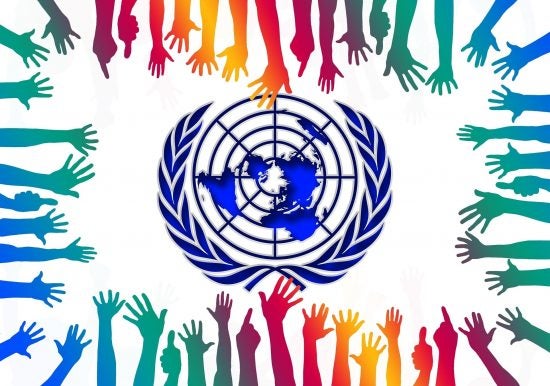 The United Nations Special Procedures are far more interesting than their title suggests, and we argue it is time for more of us to recognize this. We portray the Procedures as a missing population, neglected both by proponents of global health and global health law, and by many human rights advocates too. We call for them to be seen as an essential supplement to the cast of characters—courts, UN treaty bodies, non-governmental organizations, victims, and states—that dominate accounts of human rights law. We describe this as ‘peopling’ human rights law, or to be more accurate, peopling it differently.
The United Nations Special Procedures are far more interesting than their title suggests, and we argue it is time for more of us to recognize this. We portray the Procedures as a missing population, neglected both by proponents of global health and global health law, and by many human rights advocates too. We call for them to be seen as an essential supplement to the cast of characters—courts, UN treaty bodies, non-governmental organizations, victims, and states—that dominate accounts of human rights law. We describe this as ‘peopling’ human rights law, or to be more accurate, peopling it differently.
So what or who are the United Nations Special Procedures? They are a system of independent experts appointed to monitor and report on human rights violations, and more generally to advise and assist in promoting and protecting rights. They work alone (either as special rapporteurs or independent experts), in formal groups (working groups), and in ad hoc collaborations. Their remit extends to the full range of rights: civil, economic, political, cultural, and social. Most of them have mandates that focus on a theme (such as violence against women, the right to health, torture, or extreme poverty), but some cover countries or territories. They are appointed by, and accountable to, the UN’s Human Rights Council, but they are independent from it. They are also unpaid, receiving only expenses and some administrative assistance. To fulfil their functions, Special Procedures mandate-holders engage in fact-finding missions to states and international organizations. They also issue public and press statements, deliver annual reports to the Human Rights Council and the General Assembly, and make urgent appeals to governments, which are designed to prevent or mitigate alleged violations of human rights, or simply to seek clarification.
But what precisely is “special” about these procedures and the work they do? We nominate five features:
- their unique access to states (which is not to say that all states cooperate in practice),
- their contributions to the recognition and realization of human rights,
- their agenda-setting for neglected rights,
- the ways in which they challenge silos—for example, their work across the national, regional, and international—with both state and non-state actors (including Glaxo Smith Kline, one of the world’s largest pharmaceutical companies),
- and in doing all of the above, their lack of formal enforcement powers, relying on cooperation and dialogue in a vortex of politicking by states and others.
A wide range of Special Procedures hold mandates in the health field, requiring a new way of thinking about human rights law. It is a mistake to see human rights law through a conventional law lens, which focuses on clear and precise norms, and high and consistent enforceability. If more of us were willing to study the Special Procedures, we could bring a different picture into view: one that reveals a radically pluralist field of law, involving deliberation and repeat-play, with input from an array of actors, allied to a keen sense of strategy. We would not have a magic bullet, but we would have a better chance of harnessing the potential of human rights law for meeting global health’s grand challenges.
Read more about efforts to engage human rights in global health through the Special Procedures mandate holders in:
Human Rights in Global Health: Rights-Based Governance for a Globalizing World (2018) available from Oxford University Press or Amazon.com



